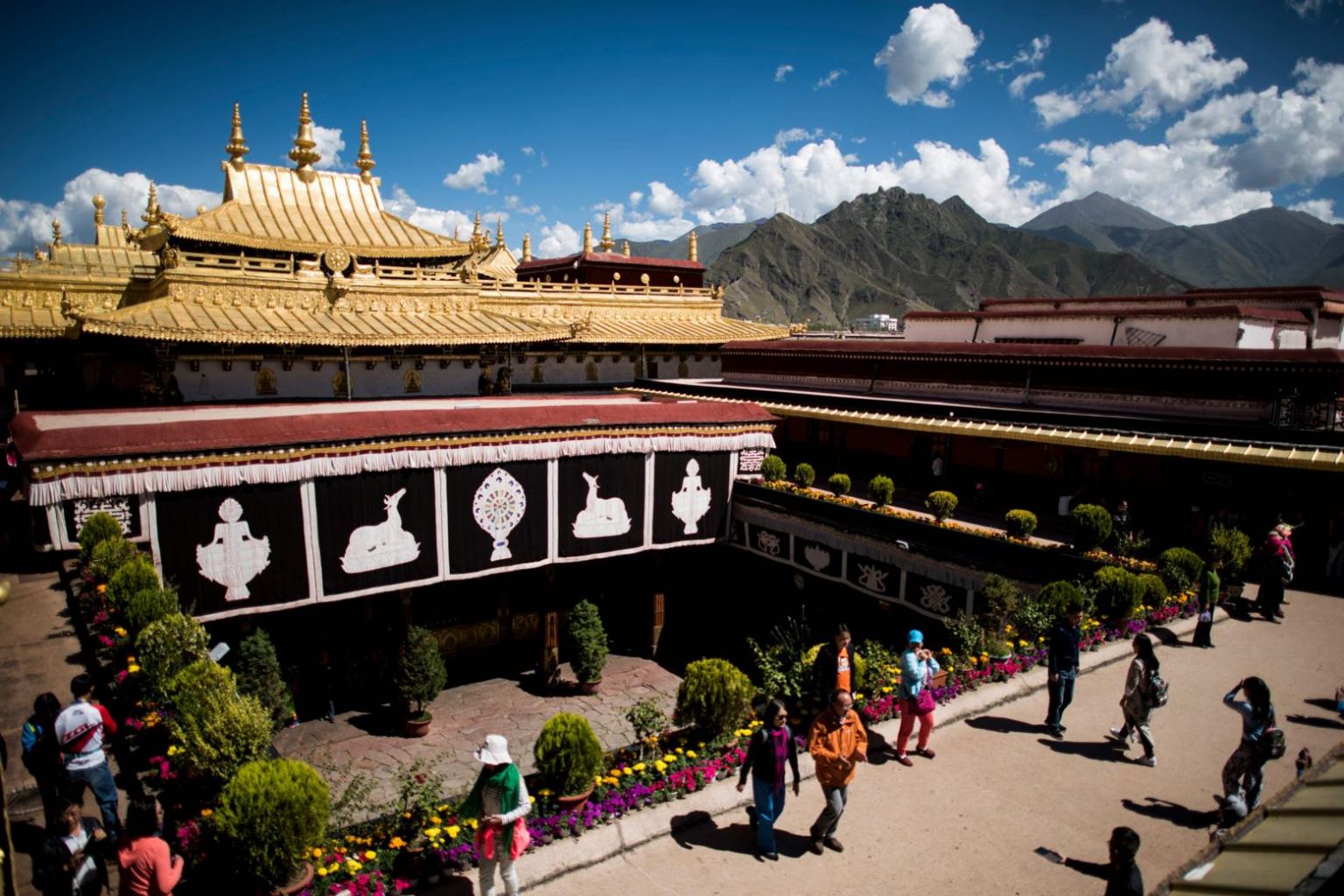Fire-hit Jokhang temple streets reopen after blaze at Tibet holy site
Sign up now: Get insights on Asia's fast-moving developments

Chinese tourists on the roof of the Jokhang Temple in Tibet on Sept 10, 2016
PHOTO: AFP
Follow topic:
BEIJING (AFP) - Streets around Lhasa's fire-hit Jokhang temple, one of the most sacred sites for Tibetan Buddhism, were reopened to pilgrims on Sunday (Feb 18) after a blaze broke out the night before, Chinese state media said, but the extent of damage remained unclear.
The official Xinhua news agency said the fire had erupted Saturday evening in part of the more than 1,300-year-old Jokhang temple, but was soon put out.
Images posted on social media of the blaze showed the eaved roof of a section of the building lit with roaring yellow flames and emitting a haze of smoke.
"The fire was quickly extinguished, there were no casualties and order is normal in the area," said the state-run Tibet Daily, adding that Tibet's top Communist party official Wu Yingjie had rushed to the scene.
Jokhang temple is a Unesco World Heritage Site which lies at the heart of old Lhasa.
The Barkhor - a bustling, shop-lined area surrounding Jokhang whose streets and square constitute one of the most important pilgrimage circuits for Tibetans - was temporarily closed after the fire but has been reopened, the state Xinhua news agency said Sunday.
Prominent Tibetan writer Tsering Woeser told AFP she was "very worried" about the state of the monastery.
"Tibetans consider Lhasa to be a sacred place, but Jokhang is a sacred place within that sacred place - the most sacred in all of Tibet," she said.
"Some people say it's only because of Jokhang that the holy city of Lhasa exists at all."
"No matter where they are in the world, Tibetans all wish to come to Lhasa to pray at Jokhang; it's the wish of a lifetime. Many who make pilgrimage to Lhasa prostrating do so just to visit the temple," she added.

The area has been the site of past protests against Beijing's presence in Tibet.
On Twitter, which is blocked in China, Tibetans abroad noted that photos and posts about the blaze were quickly being censored.
Robert Barnett, a London-based Tibetologist, tweeted that sources in Lhasa "claim police have threatened anyone distributing pictures or unofficial news about the fire." .
Home of a venerated icon
The incident comes as Tibetans across the country are celebrating Losar, the traditional Tibetan New Year that began Friday, the same day as the Chinese lunar new year.
The temple had been closed to the public on Saturday, Xinhua reported, citing a schedule from local authorities from before the holiday began.
Jokhang monastery houses one of Tibetan Buddhism's most venerated icons, the Jowo Shakyamuni - a statue believed to be one of just three crafted during the Buddha's actual lifetime, depicting him at age 12.
It is also home to numerous other priceless cultural artifacts, including over 3,000 images of Buddhas, deities and historical figures as well as treasures and manuscripts, according to UNESCO.
Many murals and other items were damaged during the Cultural Revolution, but much of its wooden architectural structure had remained intact over the centuries despite countless renovations, said Woeser.
China has ruled Tibet since the 1950s, and has been accused of trying to eradicate its Buddhist-based culture through political and religious repression.
Beijing insists that Tibetans enjoy extensive freedoms and argues that it has brought economic growth to the region.
Foreign journalists are banned from visiting Tibet except on state-sponsored tours, as Beijing seeks to strictly control the narrative about the region, ranked the second-least free territory in the world after Syria by US think tank Freedom House.
In 2008, demonstrations by Tibetan monks in Lhasa degenerated into deadly violence targeting China's majority Han ethnic group and the Hui, a Muslim minority.
Later that year, dozens of monks burst into Jokhang temple to interrupt a state-run foreign media press tour intended to showcase the region's harmony and stability in the wake of the protests, accusing the government of lying.
More than 150 Tibetans have self-immolated in protest against Beijing since 2009, according to the International Campaign for Tibet, headquartered in Washington.

